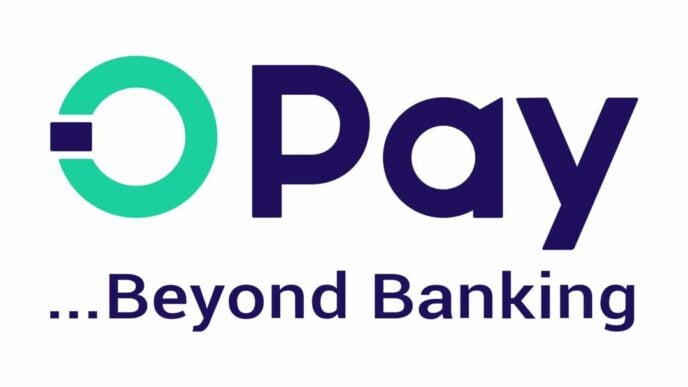BY SOJI AKINREMI
I was intrigued by some of the perspectives shared by accomplished journalist and former presidential spokesman, Segun Adeniyi, in The Verdict, his weekly column in the 6 February edition of ThisDay.
Of particular interest to me was the section of the article portraying the Advertising Regulatory Council of Nigeria (ARCON) as a barrier to entrepreneurship, stopping just short of likening ARCON to the Third Reich due to the extent of its regulatory powers over Advertising messages.
Many would likely come to a similarly unflattering conclusion after reading the story presented in the article, and they would have a reason for their judgment. A friend of the writer received a letter from ARCON demanding a payment of N1 million as a fine imposed for promoting her restaurant without obtaining the required vetting approval certificate from the Advertising Standards Panel. The letter also stated that any promotional attempts must be communicated to ARCON before publication.
Advertisement
There was, commendably, no hint, however subtle, that ARCON used powers it does not have. Article 148 (b) of the ARCON Act 2022 stipulates pre-vetting and it was in the exercise of that power that it sought to penalise “call this place (the restaurant) for food,” which was the message it deemed as advertising.
The conclusion reached was that the matter should not fall under the jurisdiction of the law, a situation that was further escalated by another demand notice from ARCON, requesting N1 million from an individual unconnected to the restauranteur. This demand was made for posting about the restaurant on TikTok, which, along with Instagram, is the preferred platform for food vendors.
Also of interest is the article’s dim view of the expansion of ARCON’s jurisdiction to promotional messages by influencers, bloggers, comedians, skit makers and brand owners. If I ran a business in areas under ARCON’s oversight or preferred an ethics-free trade zone, which Nigerians love to bits, I would feel uneasy like the restauranteur and I would feel justified.
Advertisement
The article’s view of the advertising regulatory framework, which it described as “ridiculous and dangerous”, and as one of the useless laws made by the national assembly appears to be a vote for a return to the ethics-free trade zone.
I want to believe that it was a nod innocently given, not agenda-driven.
Innocence, however, offers no shield against exploitation by the unscrupulous or even those genuinely persuaded that they offer solutions. What can help is regulation, the type the advertising regulatory framework was developed to do.
Social media platforms, for example, are crawling with medically unqualified influencers – many with millions of followers- exploiting the absence of easy medical solutions by posing as experts and selling fake cures for cancer, stroke, fibroids, hypertension and diabetes, hair fall and sexual wellness among others. The messages, which make extravagant claims of complete reversal of terminal conditions, have duped people of their money and well-being.
Advertisement
Often, this is done through the creation of fake social media pages and profiles devoted to the circulation of unscientific treatment solutions, magical remedies and panacea for terminal illnesses. Video testimonies, often manipulated ads, in the form of real incidents are a major tool used to canvas customers searching for alternative treatment options.
What this convinces me of is that the field cannot be left to every Tom, Dick or Harry whether he is a restauranteur, mixologist, financial service provider, health and wellness-focused entity or property company. A responsible society protects consumers from false information and, misleading claims, financial scams, and messages capable of compromising public health. The existence of regulatory frameworks worldwide ensures that advertising messages are accurate, transparent, and developed with consumer safety in mind.
The notion that regulation hinders entrepreneurship and job creation is not only misguided but also perilous, reminiscent of the discussions surrounding commercial motorcyclists AKA okada riders. In their defence against threats of an outright ban or restriction, sympathizers argue that their right to earn a living must not be curtailed.
Supporters argue that, given the harsh economic situation, riders should not be banned or restricted to prevent them from resorting to crime. While the arguments are not invalid, we cannot take the right to earn a living as one that includes the right to endanger passengers, causing injury or worse. That the economy is harsh and people need to be encouraged to do honest work cannot be a licence to daredevilry that often yields grotesque outcomes.
Advertisement
Globally, ethical advertising frameworks are considered essential for consumer trust, market stability, and economic growth. Nigeria, with its dizzying socio-cultural diversity, is at higher risk of advertising without structured regulation.
Nearly three years ago, the Sterling Bank Easter advertising campaign drew a controversial comparison between Jesus rising from the grave and the in-oven rising of “Agege Bread”. This comparison nearly sparked an explosion of sectarian outrage across the country. Fortunately, the situation was defused thanks to the intervention of ARCON, which insisted on the removal of the offensive imagery.
Advertisement
Last year, similar emotions were stirred, also around Easter, by a Federal Inland Revenue Service ad campaign (“Christ Paid for Sins, Not Taxes”). This also had to be withdrawn to forestall an eruption of public outrage.
The real estate sector has been a happy hunting ground for many a scam artist, abetted, perhaps innocently, by big-time influencers, who endorse the false investment prospectus of shady real estate companies.
Advertisement
Without regulation, scam artists will be happily skipping around town, while those whose money they would have taken will be next door to poverty. We love to tout “saner climes” as places of limitless freedom. That does not apply to advertising. The United States Federal Trade Commission (FTC) is strict in its enforcement of fidelity in advertising. Three years ago, the U.S. Securities and Exchange Commission (SEC) slammed a fine of $1.26 million on Kim Kardashian for promoting a cryptocurrency token on Instagram without due process and a disclosure that she had been paid the sum of $250,000 for the gig.
The U.S. Food and Drug Administration (FDA) insists on pre-clearance for medical advertisements to protect consumers from medications without scientific validation, a system credited with preventing the exposure of 45 misleading drug advertisements to the public. Lives and organs have been saved, without a doubt.
Advertisement
I believe, that the suggestion that ARCON imposes a blanket ₦1 million fine for a breach of its framework, thereby putting small businesses under enormous strain, is an honest misunderstanding of what obtains. The vetting fee is ₦15,000, which covers the administrative costs of reviewing advertising content. The ₦1 million fine is only imposed on those who deliberately violate regulations. This is intended to serve as a deterrent, not a standard charge.
Also, it is not something you do not find in other climes Those in breach of advertising regulations in the UK expose themselves to fines that could be as high as £500,000. In the U.S., a breach could invite a multimillion-dollar fine. In both countries, the message is the same: compliance attracts a minimal cost, while a breach can cause a nosebleed in terms of a fine.
The article’s assertion that industry players have been ambushed seems to arise from a lack of understanding regarding engagement efforts with stakeholders—such as influencers, SMEs, agencies, and the public—on compliance requirements.
The regulations are not perfect. Not many, if any, are. A stronger campaign, in my view, should be that ARCON, whose tribunal is immune from litigation, should not be the complainant, prosecutor and judge in a matter in which it is heavily invested.
Akinremi writes from Lagos.
Views expressed by contributors are strictly personal and not of TheCable.











